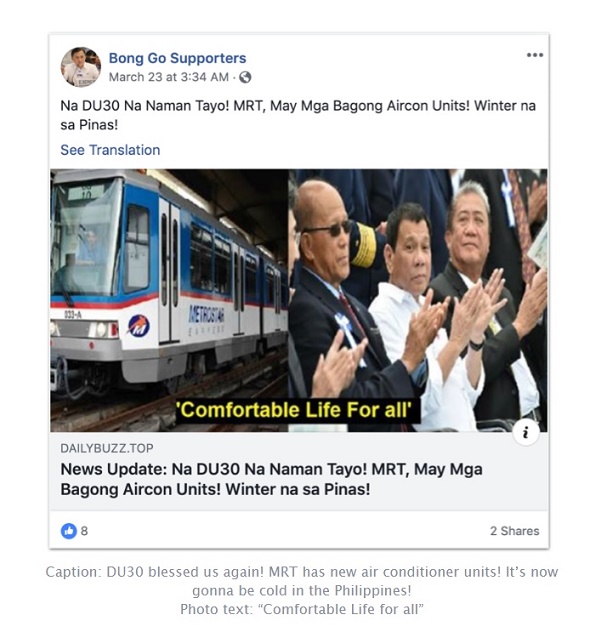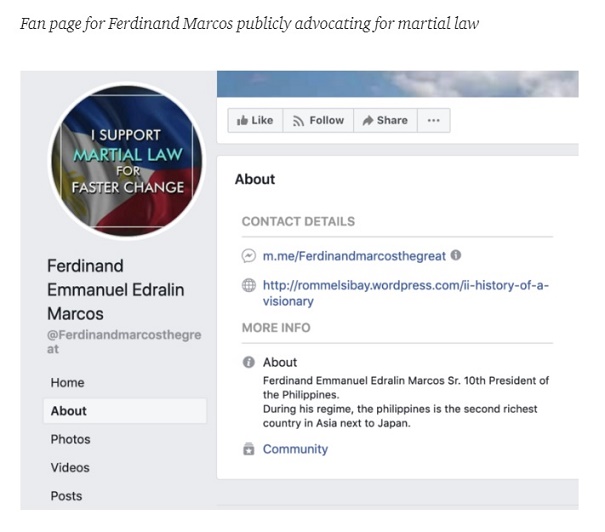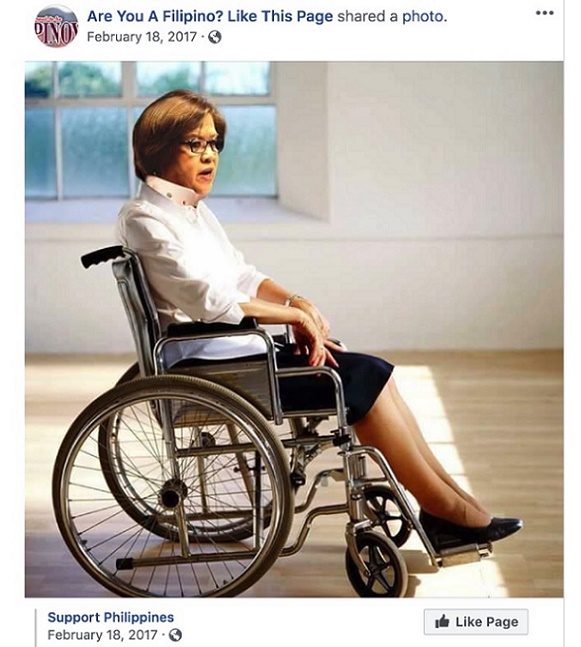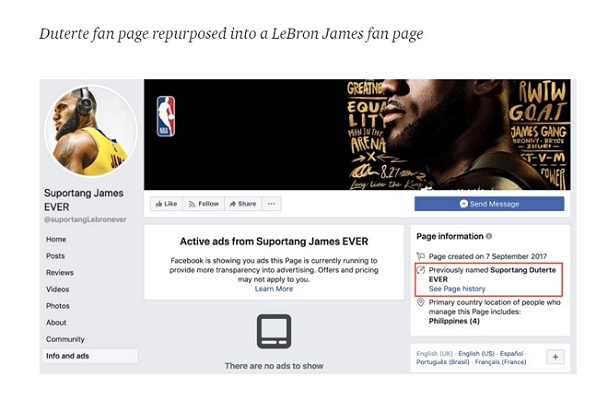
In his briefing on the latest takedown of accounts in Facebook and Instagram in the Philippines found to be engaged in “coordinated inauthentic behavior,” Nathaniel Gleicher, head of Facebook Cybersecurity Policy, underscored that the reason was not the posted content.
He said it was because “the people behind this activity coordinated with one another and used fake accounts to misrepresent themselves.” That’s “coordinated inauthentic behavior.”
It so happened, however, that tracing the trail of the 67 Pages, 68 Facebook accounts, 40 Groups and 25 Instagram accounts that were taken down, led Gleicher and his team to Nic Gabunada, head of Rodrigo Duterte’s social media during the 2016 presidential campaign.

An article in Medium.com by Melanie Smith, intelligence analyst at Graphika, the group that works with Facebook in investigating and analyzing social media landscape, also said the takedown includes “a set of 65 pages that were primarily engaged in spreading content supportive of President Duterte of the Philippines and promoting a number of Duterte-aligned politicians due to run in the House of Representatives elections, scheduled for May. This set of accounts ranges widely in popularity, with the number of “likes” per pages spanning from 3,318 to 457,624.”
Examples shown were post by supporters of senatorial candidates Bong Go, Ronald de la Rosa, Imee Marcos and Sonny Angara.
Smith also said the large majority of the content shared by pages taken down was political in nature. “. In our categorization of content and narratives shared by the network, we found that 46.2 % of the pages shared content explicitly supporting President Duterte as a politician, and the second largest category (27.7%) shared news articles that paint the Duterte administration and the government writ large in a positive light.”
It’s worth noting, however, that most of the pages taken down were created in 2017. The oldest page was created May 2013 and the most recent page on October 24, 2018.

This means that after the 2016 elections Gabunada expanded and strengthened the network he organized during the campaign.
Facebook said “About 3.6 million accounts followed one or more of these Pages, about 1.8 million accounts joined at least one of these Groups and around 5,300 accounts followed one or more of these Instagram accounts.”
Unlike during the campaign when, he said, those were mostly run by volunteers, they seem to be well-funded because Facebook said Gabunada’s network spent $59,000 USD for ads on Facebook “paid for in Philippine peso, Saudi riyal and US dollars. The first ad ran in January 2014 and the most recent ad ran in March 2019.”
In an interview with VERA Files immediately after the 2016 elections, Gabunada, a marketing executive from Davao (he formerly headed ABS-CBN Research and Business Analysis), he said he drew from his experience as an activist in the 80s for the social media network he set up for the Duterte campaign. He said that he was working closely with Leoncio Evasco Jr., former priest who joined the underground communist movement during the Marcos years, later entered politics and was appointed by Duterte as his cabinet secretary in 2016.
Evasco has resigned from the cabinet and is now a candidate for governor in Bohol.

Evasco’s name was mentioned by Smith in her analysis of the posts.
Smith said they examined “Roughly 48,600 words” from recent posts and from the about sections of these 65 pages.
“Analysis of this aggregated text data revealed the main languages of messaging to be English and Filipino, with roughly half of all messaging occurring in each language. Examining triplets of words occurring in this corpus (also known as “trigrams”) lent insight into the main topics of interest for messaging across these pages. The most frequent trigrams in the set nearly all contain Rodrigo Duterte’s name or the names of other current members of the Duterte administration, such as Jun Evasco. Particularly frequent are trigrams wishing happy birthday to President Duterte and Secretary Evasco. Bohol, a city and province in the Philippines due to have local elections in early May, also appears high up in the most frequently used trigrams in the set. Other common topics in this set included Ferdinand Marcos and support for Duterte’s war on drugs,” she said.
It’s not all politics, Smith said: “About 12,3% of the pages in this set were seemingly focused on topics other than politics: they primarily include fan pages for Korean actors, models, and popstars, as well as a LeBron James fan page. These pages appeared to be run by administrators in the Philippines and occasionally interweave pro-government news into their timelines. Inspection of the page histories revealed that some of these pages had been repurposed from Duterte support pages.
An example page showed “Suportang James EVER” which was s previously named “Suportang Duterte EVER.”
Reads Smith’s analysis here: https://medium.com/graphika-team/archives-facebook-finds-coordinated-and-inauthentic-behavior-in-the-philippines-suspends-a-set-d02f41f527df.
It’s an amazing network that Gabunada has created and nurtured.

Be First to Comment